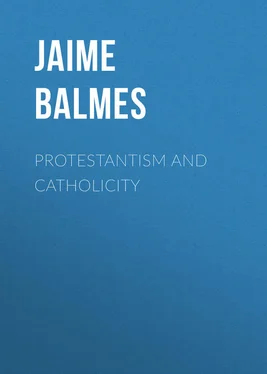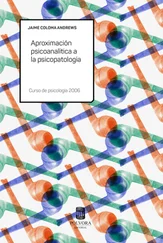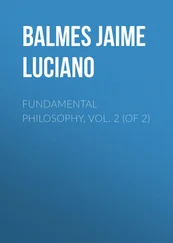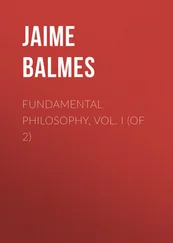Jaime Balmes - Protestantism and Catholicity
Здесь есть возможность читать онлайн «Jaime Balmes - Protestantism and Catholicity» — ознакомительный отрывок электронной книги совершенно бесплатно, а после прочтения отрывка купить полную версию. В некоторых случаях можно слушать аудио, скачать через торрент в формате fb2 и присутствует краткое содержание. Жанр: foreign_antique, foreign_prose, на английском языке. Описание произведения, (предисловие) а так же отзывы посетителей доступны на портале библиотеки ЛибКат.
- Название:Protestantism and Catholicity
- Автор:
- Жанр:
- Год:неизвестен
- ISBN:нет данных
- Рейтинг книги:3 / 5. Голосов: 1
-
Избранное:Добавить в избранное
- Отзывы:
-
Ваша оценка:
- 60
- 1
- 2
- 3
- 4
- 5
Protestantism and Catholicity: краткое содержание, описание и аннотация
Предлагаем к чтению аннотацию, описание, краткое содержание или предисловие (зависит от того, что написал сам автор книги «Protestantism and Catholicity»). Если вы не нашли необходимую информацию о книге — напишите в комментариях, мы постараемся отыскать её.
Protestantism and Catholicity — читать онлайн ознакомительный отрывок
Ниже представлен текст книги, разбитый по страницам. Система сохранения места последней прочитанной страницы, позволяет с удобством читать онлайн бесплатно книгу «Protestantism and Catholicity», без необходимости каждый раз заново искать на чём Вы остановились. Поставьте закладку, и сможете в любой момент перейти на страницу, на которой закончили чтение.
Интервал:
Закладка:
I mean to show from this, that when we have to do with Christian civilization, when we collect and analyze the facts which distinguish its march, it is not necessary, or even often proper, to suppose that the men who have contributed to it in the most remarkable manner understood, to the full extent, the results of their own efforts. It is glory enough for a man to be pointed out as the chosen instrument of Providence, without the necessity of attributing to him great ability or lofty ambition. It is enough to observe that a ray of light has descended from heaven and illumined his brow; it is of little importance whether he foresaw that this ray, by reflection, was destined to shed a brilliant light on future generations. Little men are commonly smaller than they think themselves, but great men are often greater than they imagine; if they do not know all their grandeur, it is because they are ignorant that they are the instruments of the high designs of Providence. Another observation which we ought always to have present in the study of these great events is, that we should not expect to find there a system, the connection and harmony of which are apparent at the first coup d'œil . We must expect to see some irregularities and objects of an unpleasant aspect; it is necessary to guard against the childish impatience of anticipating the time; it is indispensable to abandon that desire which we always have, in a greater or less degree, and which always urges us to seek every thing in conformity with our own ideas, and to see every thing advance in the way most pleasing to us.
Do you not see nature herself so varied, so rich, so grand, lavish her treasures in disorder, hide her inestimable precious stones and her most valuable veins of metal in masses of earth? See how she presents huge chains of mountains, inaccessible rocks, and fearful precipices, in contrast with her wide and smiling plains. Do you not observe this apparent disorder, this prodigality, in the midst of which numberless agents work, in secret concert, to produce the admirable whole which enchants our eyes and ravishes the lover of nature? So with society; the facts are dispersed, scattered here and there, frequently offering no appearance of order or concert; events succeed each other, act on each other, without the design being discovered; men unite, separate, co-operate, and contend, and nevertheless time, that indispensable agent in the production of great works, goes on, and all is accomplished according to the destinies marked out in the secrets of the Eternal.
This is the march of humanity; this is the rule for the philosophic study of history; this is the way to comprehend the influence of those productive ideas, of those powerful institutions, which from time to time appear among men to change the face of the earth. When in a study of this kind we discover acting at the bottom of things a productive idea, a powerful institution, the mind, far from being frightened at meeting with some irregularities, is inspired, on the contrary, with fresh courage; for it is a sure sign that the idea is full of truth, that the institution is fraught with life, when we see them pass through the chaos of ages, and come safe out of the frightful ordeals. Of what importance is it that certain men were not influenced by the idea, that they did not answer the object of the institution, if the latter has survived its revolutions, and the former has not been swallowed up in the stormy sea of the passions? To mention the weaknesses, the miseries, the faults, the crimes of men, is to make the most eloquent apology for the idea and the institution.
In viewing men in this way, we do not take them out of their proper places, and we do not require from them more than is reasonable. We see them enclosed in the deep bed of the great torrent of events, and we do not attribute to their intellects, or to their will, any thing that exceeds the sphere appointed for them; we do not, however, fail to appreciate in a proper manner the nature and the greatness of the works in which they take part, but we avoid giving to them an exaggerated importance, by honoring them with eulogiums which they do not deserve, or reproaching them unjustly. Times and circumstances are not monstrously confounded; the observer sees with calmness and sang froid the events which pass before his eyes; he speaks not of the empire of Charlemagne as he would of that of Napoleon, and is not hurried into bitter invectives against Gregory VII. because he did not adopt the same line of political conduct as Gregory XVI.
Observe that I do not ask from the philosophical historian an impassive indifference to good and evil, to justice and injustice; I do not claim indulgence for vice, nor would I refuse to virtue its eulogy. I have no sympathy with that school of historic fatalism, which would bring back to the world the destiny of the ancients; a school which, if it acquired influence, would corrupt the best part of history, and stifle the most generous emotions. I see in the march of society a plan, a harmony, but not a blind necessity; I do not believe that events are mingled up together indiscriminately in the dark urn of destiny, nor that fatalism holds the world enclosed in an iron circle. But I see a wonderful chain stretching over the course of centuries, a chain which does not fetter the movements of individuals or of nations, and which accommodates itself to the ebb and flow which are required by the nature of things; at its touch great thoughts arise in the minds of men: this golden chain is suspended by the hand of the Eternal, it is the work of infinite intelligence and ineffable love.
CHAPTER XIV.
DID THERE EXIST AT THE EPOCH WHEN CHRISTIANITY APPEARED ANY OTHER PRINCIPLE OF REGENERATION?
In what condition did Christianity find the world? This is a question which ought to fix all our attention, if we wish to appreciate correctly the blessings conferred by that divine religion on individuals and on society, if we are desirous of knowing the real character of Christian civilization. Certainly at the time when Christianity appeared, society presented a dark picture. Covered with fine appearances, but infected to the heart with a mortal malady, it presented an image of the most repugnant corruption, veiled by a brilliant garb of ostentation and opulence. Morality was without reality, manners without modesty, the passions without restraint, laws without authority, and religion without God. Ideas were at the mercy of prejudices, of religious fanaticism, and philosophical subtilties. Man was a profound mystery to himself; he did not know how to estimate his own dignity, for he reduced it to the level of brutes; and when he attempted to exaggerate its importance, he did not know how to confine it within the limits marked out by reason and nature: and it is well worthy of observation, that while a great part of the human race groaned in the most abject servitude, heroes, and even the most abominable monsters, were elevated to the rank of gods.
Such elements must, sooner or later, have produced social dissolution. Even if the violent irruption of the barbarians had not taken place, society must have been overturned sooner or later, for it did not possess a fertile idea, a consoling thought, or a beam of hope, to preserve it from ruin.
Idolatry had lost its strength; it was an expedient exhausted by time and by the gross abuse which the passions had made of it. Its fragile tissue once exposed to the dissolving influence of philosophical observation, idolatry was entirely disgraced; and if the rooted force of habit still exercised a mechanical influence on the minds of men, that influence was neither capable of re-establishing harmony in society, nor of producing that fiery enthusiasm which inspires great actions – enthusiasm which in virgin hearts may be excited by superstition the most irrational and absurd. To judge of them by the relaxation of morals, by the enervated weakness of character, by the effeminate luxury, by the complete abandonment to the most repulsive amusements and the most shameful pleasures, it is clear that religious ideas no longer possessed the majesty of the heroic age; no longer efficacious, they only exerted on men's minds a feeble influence, while they served in a lamentable manner as instruments of dissolution. Now it was impossible for it to be otherwise: nations who had obtained the high degree of cultivation of the Greeks and Romans; nations who had heard their great sages dispute on the grand questions of divinity and man, could not continue in the state of simplicity which was necessary to believe with good faith the intolerable absurdities of which Paganism is full; and whatever may have been the disposition of mind among the ignorant portion of the people, assuredly those who were raised above the common standard did not believe them – those who listened to philosophers as enlightened as Cicero, and who daily enjoyed the malicious railleries of their satirical poets.
Читать дальшеИнтервал:
Закладка:
Похожие книги на «Protestantism and Catholicity»
Представляем Вашему вниманию похожие книги на «Protestantism and Catholicity» списком для выбора. Мы отобрали схожую по названию и смыслу литературу в надежде предоставить читателям больше вариантов отыскать новые, интересные, ещё непрочитанные произведения.
Обсуждение, отзывы о книге «Protestantism and Catholicity» и просто собственные мнения читателей. Оставьте ваши комментарии, напишите, что Вы думаете о произведении, его смысле или главных героях. Укажите что конкретно понравилось, а что нет, и почему Вы так считаете.












